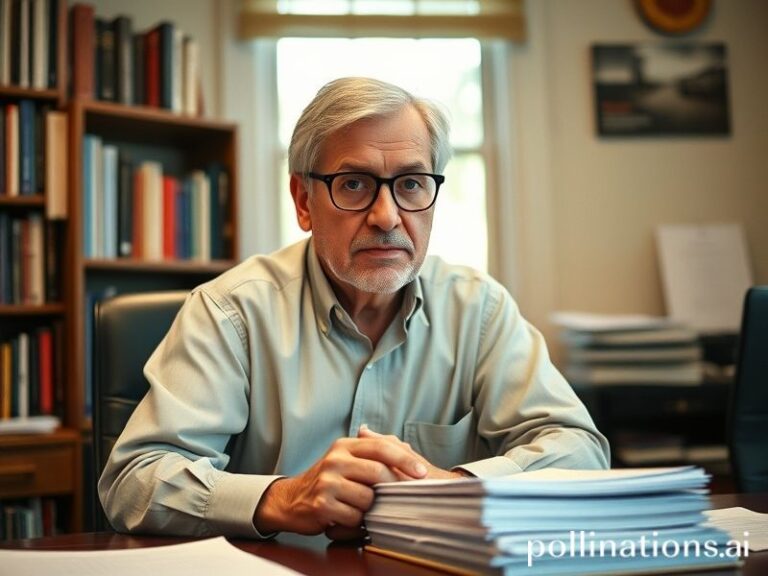From Red Carpets to Red Notices: The Rise of the Celebrity Defector
Celebrities Who Betray Their Countries: A Glamorous Tour Through Treason
There’s a special kind of schadenfreude that blooms only when the gilded fall from grace—especially when grace is replaced by handcuffs and a one-way ticket to a foreign embassy. From Moscow’s golden bubble of exiled influencers to the fluorescent glow of Tokyo interrogation rooms, the 21st-century celebrity traitor has become a reliably grotesque spectacle: part geopolitical pawn, part influencer-in-exile, part cautionary tale with an endorsement deal.
Take Steven Seagal, the human biceps who once roundhouse-kicked his way through American multiplexes and now roundhouse-kicks reality in service of the Russian Foreign Ministry. After receiving a Russian passport from his judo buddy Vladimir Putin—because nothing says “trustworthy diplomat” like a faded action star—Seagal has spent the past decade cosplaying a goodwill ambassador while parroting Kremlin talking points with the subtlety of a brick through a stained-glass window. His most recent gig: commemorating the annexation of Ukrainian territory by awkwardly waving a flag the size of a small yacht. Somewhere, an underpaid Russian propagandist is updating his LinkedIn to “Senior Celebrity Wrangler.”
Meanwhile, in the more aromatic corridors of espionage, we find Carlos Ghosn, the Franco-Lebanese-Brazilian former emperor of the Renault-Nissan alliance. Accused of financial misconduct in Japan, Ghosn executed a getaway so cinematic it deserves its own Netflix limited series: a private jet, a modified musical-equipment box, and a Turkish stopover that smelled faintly of baklava and subterfuge. Now living in Lebanon—whose government politely declines to extradite its passport holders—Ghosn hosts dinner parties where the main course is braised irony and the dessert is a PowerPoint on corporate governance. The Japanese, still fuming, have reportedly installed motion sensors in every cello case at Narita Airport.
China offers its own brand of celebrity treason, less cinematic but equally lucrative. Zhao Wei, once the nation’s sweetheart actress and billionaire investor, vanished from the internet overnight in 2021. Her movies were scrubbed, her name turned to digital ash, and her business empire was dismembered faster than you can say “regulatory compliance.” Officially, the charge sheet remains as blank as her Baidu Baike page, but rumor whispers of capital flight and foreign friends in high places. The lesson: in Beijing, you can be a superstar one minute and an unperson the next—no box required, just a bureaucrat with a delete key.
Then there’s the curious case of Meghan Markle, who didn’t defect so much as saunter across the Atlantic clutching a Netflix deal and a grievance. While not legally treasonous—unless you count crimes against the concept of monarchy—her departure from the House of Windsor triggered enough Union Jack-clad outrage to power a small Brexit. The British tabloids treated it like the evacuation of Dunkirk, if Dunkirk had involved a podcast and a chicken coop in Montecito. Across the Commonwealth, nations still debating whether to keep King Charles on their money watched the saga with the detached amusement of children witnessing their parents’ messy divorce.
What unites these disparate pariahs is not ideology but optics. In an era where nation-states double as brands, the celebrity traitor is the ultimate brand safety violation: a living, breathing recall notice. Governments once had to settle for dull diplomats; now they can outsource propaganda to someone with 20 million Instagram followers and a fragrance line. The audience, ever hungry for narrative, consumes each betrayal like a limited-edition scandal truffle—savoring the bitterness, forgetting the wrapper.
And so the carousel spins: yesterday’s hero signs autographs in a gilded cage, today’s influencer livestreams an apology in eight languages, tomorrow’s star packs an overnight bag and rehearses the phrase “I was misquoted.” Somewhere in the metaverse, a digital avatar is already beta-testing exile.
Conclusion: In the global village, treason is just another content vertical—equal parts morality play and season finale. The passports change, the accents vary, but the moral remains stubbornly the same: when the spotlight warms your skin, remember it also casts a very long shadow. And shadows, as any celebrity traitor will now tell you from whichever tax haven they currently call home, have a habit of following you all the way to the extradition hearing.







